JournalismPakistan.com | Published February 09, 2016
Join our WhatsApp channel
KARACHI/ISLAMABAD - An Oscar-winning filmmaker hopes her latest Academy Award-nominated documentary will help bring tougher laws against honor killings in Pakistan, which account for the deaths of hundreds of women and men each year.
The film, which follows the story of a young woman who survived attempted murder by her father and uncle after marrying a man without their approval, was nominated for an Oscar in January, prompting Pakistan's prime minister to pledge to take a firm stand against the "evil" practice.
More than 500 men and women died in honor killings in 2015, according to the Human Rights Commission of Pakistan.
Many of these crimes, carried out by relatives who say their mostly female victims have brought shame on the family, are never prosecuted, observers say.
"People need to realize that it is a very serious crime," Sharmeen Obaid-Chinoy (pictured), also a journalist, told Reuters in an interview in the southern city of Karachi.
"It's not something that is part of our religion or culture. This is something that should be treated as pre-meditated murder and people should go to jail for it."
Obaid-Chinoy's film "A Girl in the River: The Price of Forgiveness", scheduled to air on HBO in March, tells the story of 19-year-old Saba from Pakistan's Punjab province.
After marrying a man without the agreement of her family, Saba's father and uncle beat her, shot her in the face, put her in a bag and threw her in a river, leaving her for dead.
Saba survived, and set out to ensure that her attackers were brought to justice.
Her father and uncle were arrested and went to jail, but Saba was pressured to "forgive" her attackers. That option under Pakistani law can effectively waive a complainant's right to seek punishment against the accused, even in the case of attempted murder.
Altering the law to remove the possibility of "forgiveness" could help reduce the number of honor killings in Pakistan, advocates of such a change say.
An act that would amend the law across Pakistan was passed by one house of parliament last year, but did not clear the other chamber due to delays, said Sughra Imam, who introduced the bill when she was a lawmaker.
Both she and Obaid-Chinoy hope the attention the film has received abroad and at home, including from Pakistani Prime Minister Nawaz Sharif, might help push the amendments through.
"The greatest win of 'A Girl in the River' would be if the prime minister does take the lead, brings the stakeholders on board and they pass the (act)," Obaid-Chinoy said.
After the film was nominated in the short documentary category, Sharif issued a statement congratulating the filmmaker and pledging his government's commitment to rid Pakistan of the "evil" of honor killings by "bringing in appropriate legislation."
Obaid-Chinoy has already won an Oscar in the same category for "Saving Face", a film about acid attacks in Pakistan.
Sharif invited the director to screen the new film at his residence to an audience of prominent Pakistanis.
Although it is not clear exactly how Sharif proposes to change existing legislation, Obaid-Chinoy said his reaction was a pleasant surprise.
"This could be (Sharif's) legacy ... that no woman in this country should be killed in the name of honor, and if she is, people should go to jail for it," she said.
"The world is watching." - Reuters
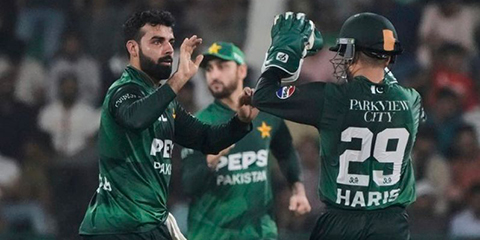
June 11, 2025: Pakistan celebrated a narrow win over Bangladesh, but beneath the jubilation lies a deeper crisis—from sidelined veterans to a collapsing domestic structure—signaling an urgent need for cricket reform.
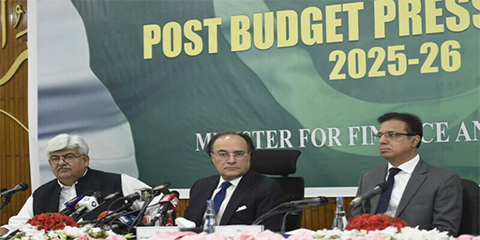
June 11, 2025: Journalists walked out of the post-budget press conference in Islamabad to protest the absence of a technical briefing and the government's dismissive behavior, calling it unacceptable and intolerable.
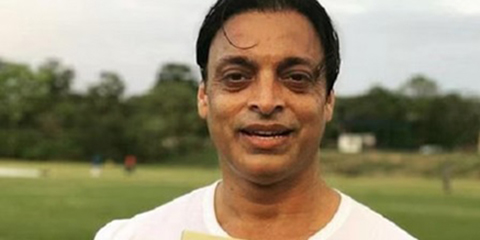
May 31, 2025: Dr. Nauman Niaz has issued a defamation notice to Shoaib Akhtar over derogatory remarks made during a recent broadcast, reigniting a longstanding media feud between the two prominent figures in Pakistan.

May 30, 2025: The Human Rights Commission of Pakistan has demanded the full repeal of PECA, citing its vague language, coercive powers, and threats to free speech and digital rights in Pakistan.

May 30, 2025: The Pakistan Federal Union of Journalists (PFUJ) has condemned the murder of journalist Syed Mohammed Shah in Jacobabad, calling for urgent justice and improved safety for media professionals in Sindh.

May 26, 2025: In Rawalpindi, police allegedly side with Jang Group to block 66 reinstated employees from resuming work despite court orders, drawing sharp criticism from unions and press freedom advocates.

May 25, 2025: PFUJ condemns the Jang Group's decision to dismiss over 80 employees in Rawalpindi, calling it an 'economic massacre.' The union warns of nationwide protests if workers are not reinstated.
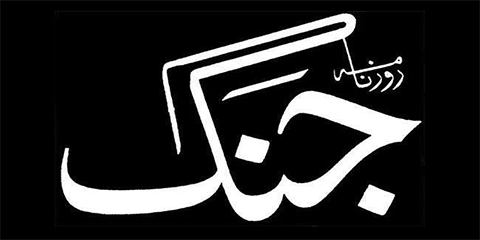
May 25, 2025: Daily Jang Rawalpindi has terminated over 80 employees, including female staff, despite multiple court rulings in their favor—raising concerns over labor rights violations and misuse of authority in Pakistani media.
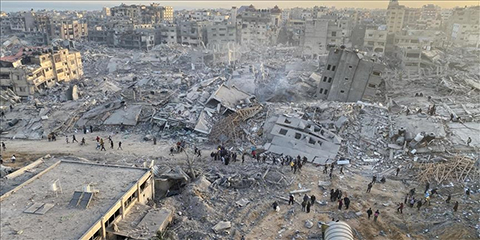
May 19, 2025 PJS reports 219 Palestinian journalists killed in Israeli attacks since October 7, with 30 women among the victims. Over 430 were injured and 685 family members were killed. Read more on the systematic targeting of media in Gaza.

May 15, 2025 Discover the legacy of Samiullah Khan, Pakistan’s legendary "Flying Horse," whose breathtaking speed and artistry redefined hockey. From Olympic glory to World Cup triumphs, his story is one of myth, movement, and magic.

May 04, 2025 Algerian authorities suspend Echorouk News TV for 10 days after it used a racist slur against African migrants. ANIRA demands an apology, calling it a violation of human dignity.

May 04, 2025 NCHR and MMfD launch a journalism fellowship to train reporters on digital rights & gender inclusion in Pakistan. Supported by UNESCO, this initiative aims to bridge the gender digital divide. Apply by May 15, 2025!
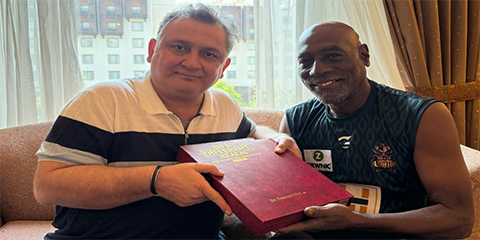
April 23, 2025 Discover Dr. Nauman Niaz’s In A Different Realm: Story of Quadruple & Triple Centuries 1876–2025, a profound exploration of cricket's most monumental innings, blending historical analysis with poetic narrative.